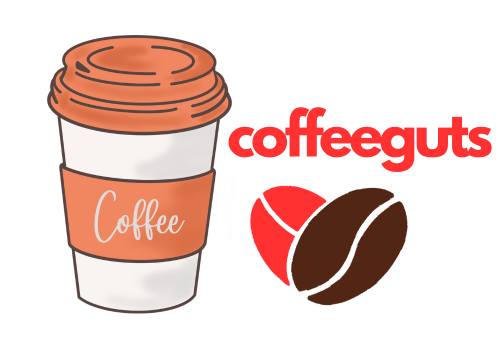Caffeine, a natural stimulant found in coffee, tea, and energy drinks, is consumed by millions daily to shake off the morning grogginess or to stay alert.
when does it become too much? If you’ve ever felt chest pain after your caffeine fix, it might be time to evaluate your intake.
we will dive into why did drinking coffee make my chest hurt ?. We’ll explore not only the effects of caffeine but also how much is considered safe and what symptoms to watch out for. If you’re someone who loves their cups of coffee but has concerns about heart health, this comprehensive guide is worth your time.
What Is Caffeine and How Does It Affect Your Body?
Caffeine is a natural compound found in various plants, used by billions worldwide to enhance alertness and reduce fatigue. Upon consumption, caffeine acts as a central nervous system stimulant, swiftly making its way to the brain. It works by blocking the action of adenosine, a neurotransmitter that relaxes the brain and makes you feel tired. This blockage leads to increased neuron firing, which the pituitary gland perceives as an emergency, thus releasing hormones that tell the adrenal glands to produce adrenaline (epinephrine).
This process explains why after a cup of coffee or an energy drink, you feel a burst of energy and alertness. Your heart rate and blood pressure may increase, and blood flow to the heart can also change. These physiological effects are usually harmless and temporary. For some individuals, especially those with certain medical conditions or a lower tolerance for caffeine, these changes can lead to discomfort or even chest pain.
Can Consuming Too Much Caffeine Cause Chest Pain?
While moderate caffeine consumption is generally considered safe for most people, high doses can lead to health issues, including chest pain or chest tightness. This can happen because high levels of caffeine can make your heart beat faster, lead to increased blood pressure, or even cause abnormal heart rhythms, which some may perceive as chest pain.
The American Heart Association notes that while a moderate amount of caffeine should not cause heart problems for most people, those who are not used to caffeine or who consume excessive amounts may be at risk.
How Does Caffeine Affect Heart Health?
Caffeine’s stimulant effects on the heart are often a point of concern when it comes to heart health. It’s true that caffeine can affect heart rate and may cause the heart to contract more forcefully.
This doesn’t mean caffeine is inherently bad for the heart, but it can be a concern for individuals with underlying heart conditions. In such cases, caffeine may exacerbate symptoms like rapid heart rate or even contribute to palpitations.
What Are the Symptoms of Excessive Caffeine Intake?
Symptoms of excessive caffeine intake can range from the relatively benign, like restlessness or insomnia, to more severe effects, such as anxiety, digestive issues, rapid heart rate, and yes, heart palpitations. Chest pain from caffeine is rare, but if you notice this symptom, especially if accompanied by a heart that is beating irregularly or very fast, it may be a sign that you’ve had too much.
How Much Caffeine Is Considered Safe?
According to health experts, up to 400 milligrams of caffeine per day appears to be safe for most healthy adults. That’s roughly the amount of caffeine in four cups of brewed coffee. It’s important to remember that sensitivity to caffeine varies. You might be perfectly comfortable after three cups of coffee per day, while someone else may experience symptoms such as heart palpitations after just one.
Could Chest Pain Indicate a More Serious Problem?
Chest pain should never be ignored. While caffeine can cause chest pain in people who consume high amounts or those sensitive to its effects, it’s not the most common cause of chest pain for most people.
Heart conditions can cause heart palpitations, chest tightness, and pain. Therefore, if you’ve experienced such symptoms, it’s prudent to visit a heart specialist for a checkup to rule out more serious issues.
Are Some People More Sensitive to the Effects of Caffeine?
Definitely. People with caffeine sensitivity will feel the effects of caffeine and may experience symptoms like jitteriness, headaches, or chest pain at lower doses than those who are used to caffeine.
Genetics, age, and how often you consume caffeine can all influence how sensitive you are to its effects. Additionally, certain medications and health conditions can make you more susceptible to experiencing the negative effects of caffeine.
How Can You Limit Caffeine Without Sacrificing Your Morning Ritual?
For those looking to limit caffeine, start by gradually reducing the number of cups of coffee per day. Switching to tea, which generally has less caffeine than coffee, can be a good strategy. Additionally, consider the timing of your caffeine consumption. Avoiding caffeine later in the day can help reduce its impact on your sleep and overall caffeine levels.
What Are the Alternatives to High-Caffeine Beverages?
If you’re trying to reduce your caffeine intake, there are many caffeine-free alternatives. Herbal teas, decaffeinated coffee, and non-caffeinated beverages can satisfy the ritual of drinking a warm beverage in the morning without the caffeine content. Lifestyle changes, like improving sleep habits and incorporating exercise, can naturally boost your energy levels without the need for caffeine.
When Should You See a Doctor About Your Caffeine Intake?
If you’ve noticed heart palpitations, chest pain, or any other concerning symptoms after consuming caffeine, it’s wise to discuss caffeine and its effects with a healthcare provider. Also, if you have a known heart condition, it’s crucial to discuss with your doctor whether any form of caffeine is safe for you.
Most Important Things to Remember:
- Up to 400 milligrams of caffeine per day is considered safe for most adults.
- High doses of caffeine can cause chest pain, rapid heart rate, and palpitations.
- Sensitivity to caffeine varies from person to person.
- Gradually reducing caffeine intake can help minimize potential withdrawal effects.
- Chest pain is a serious symptom and should prompt a medical consultation.
- There are many low-caffeine or caffeine-free alternatives to enjoy.
- A balanced lifestyle can reduce dependence on caffeine for energy.
FAQ :
Q: Can coffee make my heart beat irregularly?
A: Coffee contains caffeine, which can increase heart rate. In some cases, individuals may experience heart palpitations, where the heart feels like it is beating irregularly. It is important to note that just because you feel heart symptoms after consuming caffeine, it doesn’t necessarily mean that caffeine is causing them.
Q: Is drinking caffeine bad for my heart?
A: Consuming moderate amounts of caffeine is generally safe for most individuals. Excessive caffeine intake or underlying heart conditions can potentially pose risks. It is always best to consult with a healthcare professional to determine what is best for your individual situation.
Q: Can caffeine increase the risk of heart palpitations?
A: Some individuals may experience heart palpitations after consuming caffeine. Caffeine is known to increase heart rate, and in certain individuals, this can lead to palpitations. If you are experiencing frequent heart palpitations, you should consult with a healthcare professional to determine the underlying cause.
Q: Does avoiding caffeine completely keep my heart healthy?
A: While cutting out caffeine may be beneficial for some individuals with certain heart conditions, it is not a guarantee of maintaining a healthy heart. Other lifestyle factors, such as maintaining a balanced diet, regular exercise, and managing stress, are equally important for heart health.
Q: Can hormones increase heart rate and chest pain?
A: Yes, certain hormones can increase heart rate and potentially contribute to chest pain. Hormonal imbalances, such as those experienced during certain phases of the menstrual cycle, can affect heart function and lead to symptoms like chest pain or palpitations.
Q: Does the absence of chest pain after drinking caffeine mean it is not causing any harm?
A: Not experiencing chest pain after consuming caffeine doesn’t necessarily indicate that caffeine isn’t causing any harm. Each individual reacts differently to caffeine, and while some may experience symptoms like chest pain, others may not. It is important to listen to your body and consult with a healthcare professional if you have any concerns.


Leave a Reply